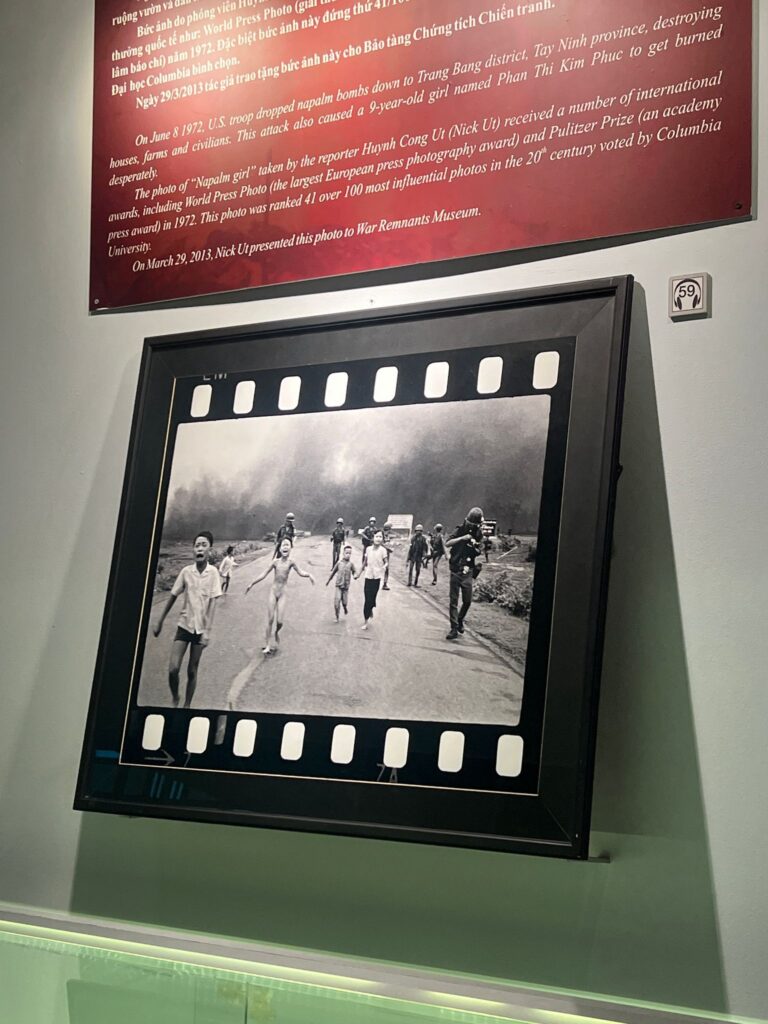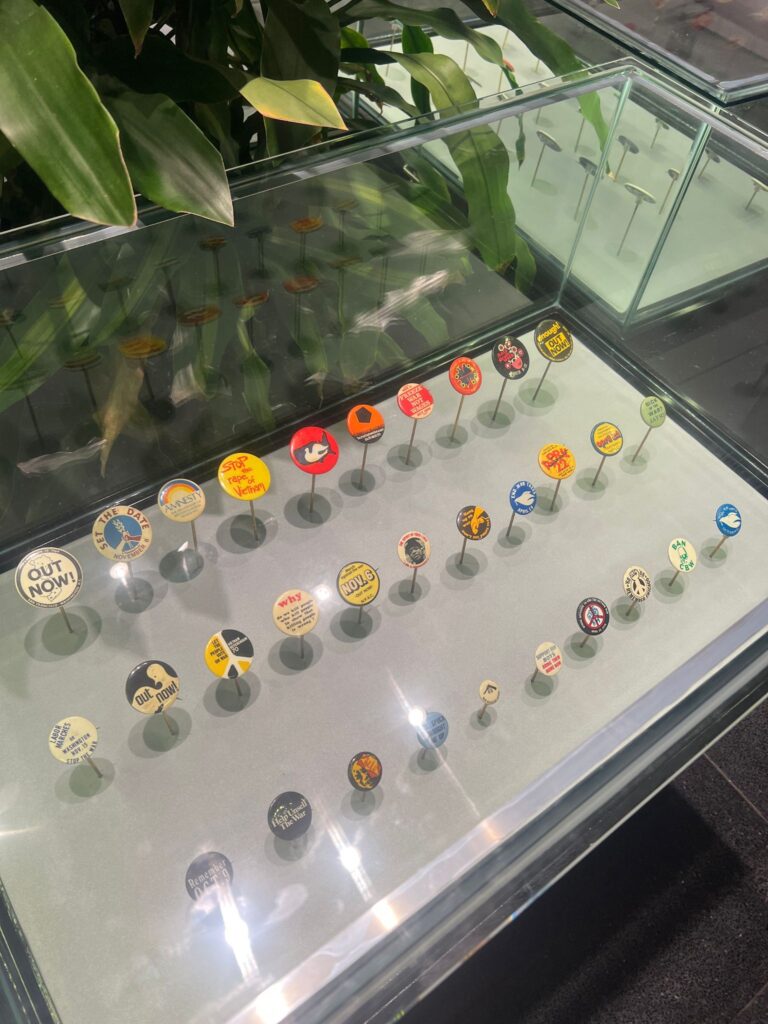| By Eliana Pisons |
A Visit to the War Remnants Museum in Ho Chi Minh City
In the heart of Ho Chi Minh City, the War Remnants Museum is a reminder of the lived experiences of the Vietnamese people during decades of conflict. During my recent visit to Vietnam, this museum left one of the most profound impressions on me, not just for its powerful visuals, but for the perspective it offered, one that is rarely addressed in Western discourse.
The museum was established in 1975 shortly after the fall of Saigon. It documents the Vietnam War, known locally as the “American War,” with an unapologetic and direct tone. Photographs depicting bombings, chemical warfare, and civilian casualties line the walls, accompanied by chilling statistics and accounts from those who experienced the conflict firsthand. One of the most haunting exhibits was the section on Agent Orange, the defoliant used by the U.S. military during the war. The exhibit underscores the devastating long-term consequences of Agent Orange exposure, including birth defects, cancer, and irreversible environmental damage, through scientific documentation and heart-wrenching personal narratives.

Different Voices, Different Perspectives
What struck me most about the museum was its emphasis on Vietnamese voices and experiences. Unlike many Western war museums that frame events through military strategies or geopolitical consequences, this museum emphasizes the human cost of war — the pain of farmers losing their land, of children born with deformities, of entire villages destroyed without warning.
The museum is not without controversy. Some critics argue that it presents a one-sided view, with limited mention of North Vietnamese war crimes or the broader Cold War dynamics that fueled the conflict. This imbalance underscores an important point: history is often written by the powerful. The War Remnants Museum gives us a different perspective, pushing us to face the real-life impact that foreign policy decisions can have on everyday people. Historian Mark Philip Bradley notes that Vietnamese memory of the war is fundamentally grounded in grief, not ideology.

Understanding Difficult Histories
Visiting this museum reminded me that every war has more than one story. And often, the voices that go unheard are the ones most in need of amplification. If we truly want to understand history, we have to be open to stepping outside our comfort zones and facing the difficult truths that we don’t always hear about.
The photos in this article were taken by Eliana Pisons at the War Remnants Museum in Ho Chi Minh City, Vietnam.



